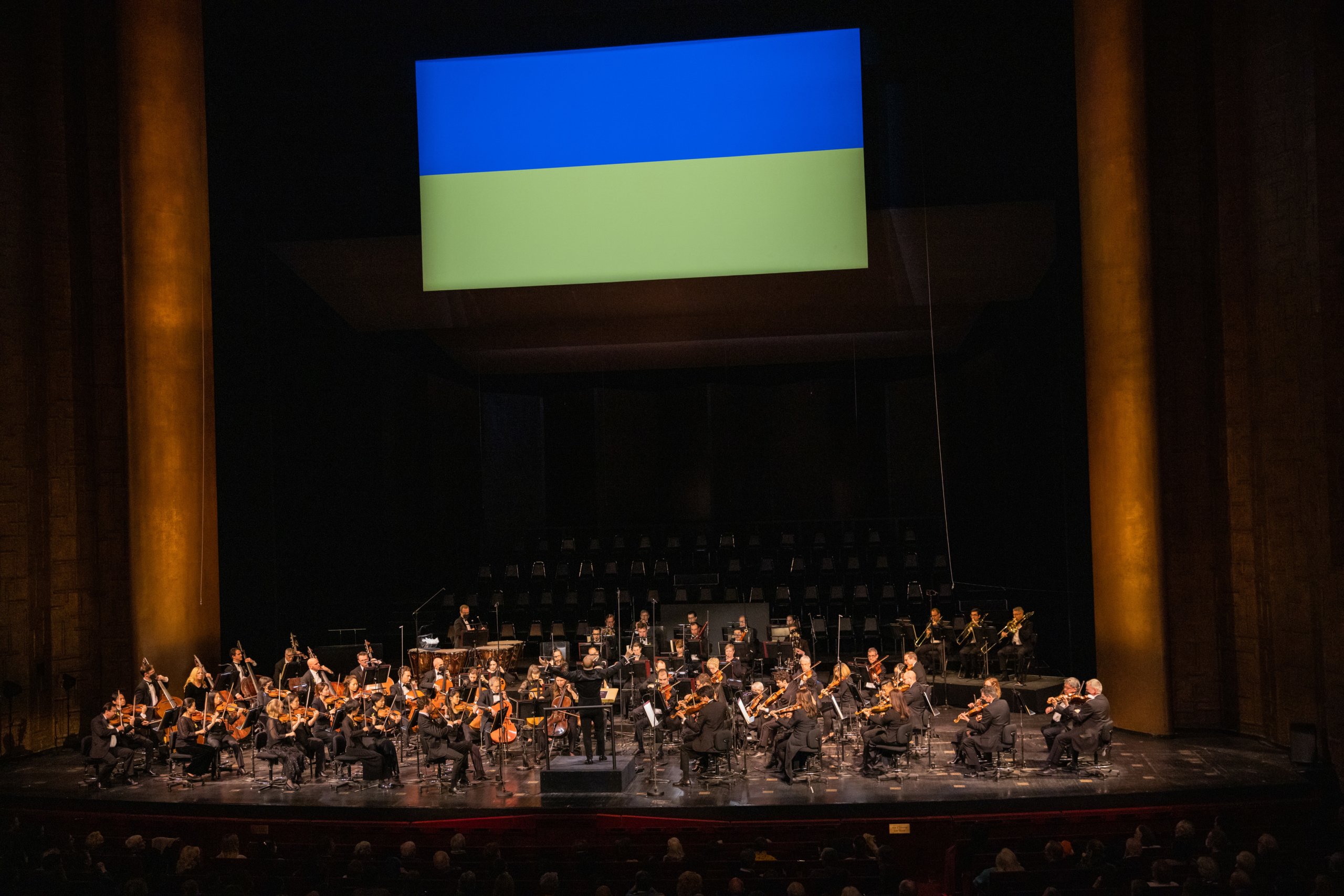
By WSR Editorial Staff
On Friday, one of the coldest February nights in the city, Ukrainians In New York joined many others at the Metropolitan Opera’s auditorium for a musical tribute to their country. The performance, For Ukraine: A Concert of Remembrance and Hope, marked the anniversary of the Russian invasion, a deadly war that has killed more than 8,000 Ukrainian civilians and has shaken the foundations of post Cold War Europe.
The two-hour show featured Beethoven’s Fifth Symphony; Mozart’s Requiem; and “Prayer for Ukraine” by Valentin Silvestrov, as well as the Ukrainian anthem, in what Sergiy Kyslytsya, Ukraine’s ambassador to the United Nations, termed a “celebration of Ukrainian resilience and hope.” It was the Met’s latest show of support for Ukraine and Ukrainian culture. Three days after the invasion last year, the Met issued a statement pledging to “dedicate the rest of our season to [Ukrainian] courage.” Then in March it held A Concert for Ukraine and in September it organized an exhibit dedicated to past and present Ukrainian performances at the company.
For Ukrainians gathered at the doors of the opera house, the concert was an opportunity to show emotional support for those suffering back home. “I can’t fathom what it means to have my nation, my parents’ homeland and my extended family [as] the target of such a horrible campaign to get rid of our identity,” said Martha Kichorowska Kebalo, a Ukrainian-American who represents the World Federation of Ukrainian Women’s Organizations, an organ of the United Nations. “It’s really more than horrifying.”
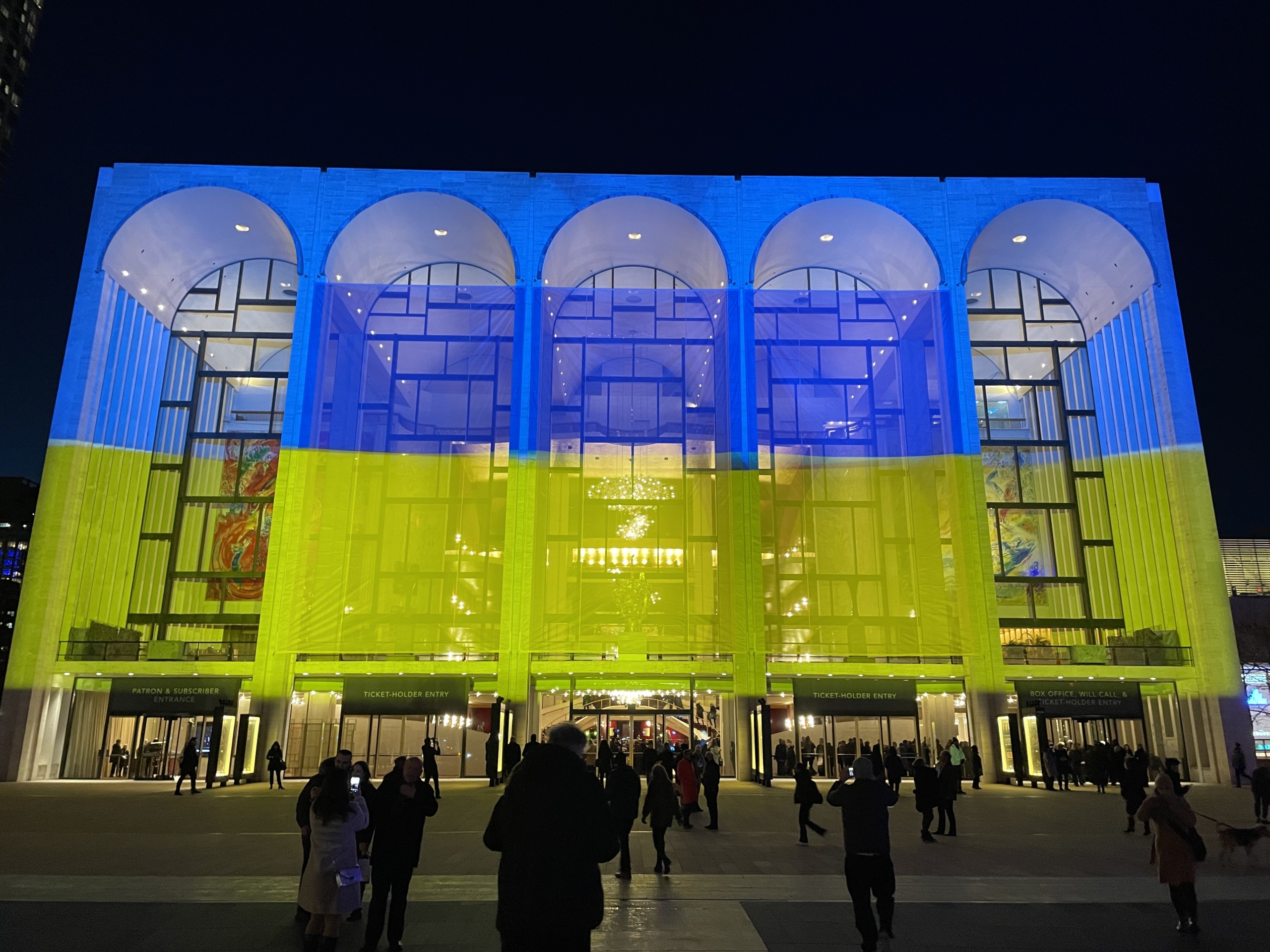
Kebalo said she believes American backing for Ukraine remains solid, “and Ukraine is giving every indication that the will is very strong.” According to a January Pew Research Center poll, however, U.S. support is becoming increasingly partisan, with only 15% of Democrats saying that the U.S. is giving too much aid to Ukraine, compared to 40% of Republicans. “This is not a situation where anybody is going to back down,” said Kebalo. “You either die in your tracks or you push the boundaries where they were before.”
Anna, a Russian-American New Yorker who attended the concert, said it was an opportunity for Russians like herself, who oppose President Vladimir Putin and the invasion, to show solidarity with their Ukrainian neighbors. “It’s a very hard day for Russians like us,” said Anna, who was born in the U.S., moved to Moscow with her family when she was eight, then moved back to the U.S. last March as a result of the invasion. “I’m going in here today knowing that we can all join together in the grieving and crying,” she told the Rag. “Whatever the costs for Russia, the war has to end and Ukraine has to get all its territories back and enjoy the freedom that those beautiful people deserve.”
When the war began, a backlash against Russians led to reactions in New York like boycotts of Russian restaurants. But Anna said that, as a political dissident in the city, she has felt support. “Whenever I say to people in my neighborhood [Washington Heights] that I’m from Russia, they would say ‘it must be so hard’,” she said. “The government [of Russia] doesn’t necessarily represent [the] people.”
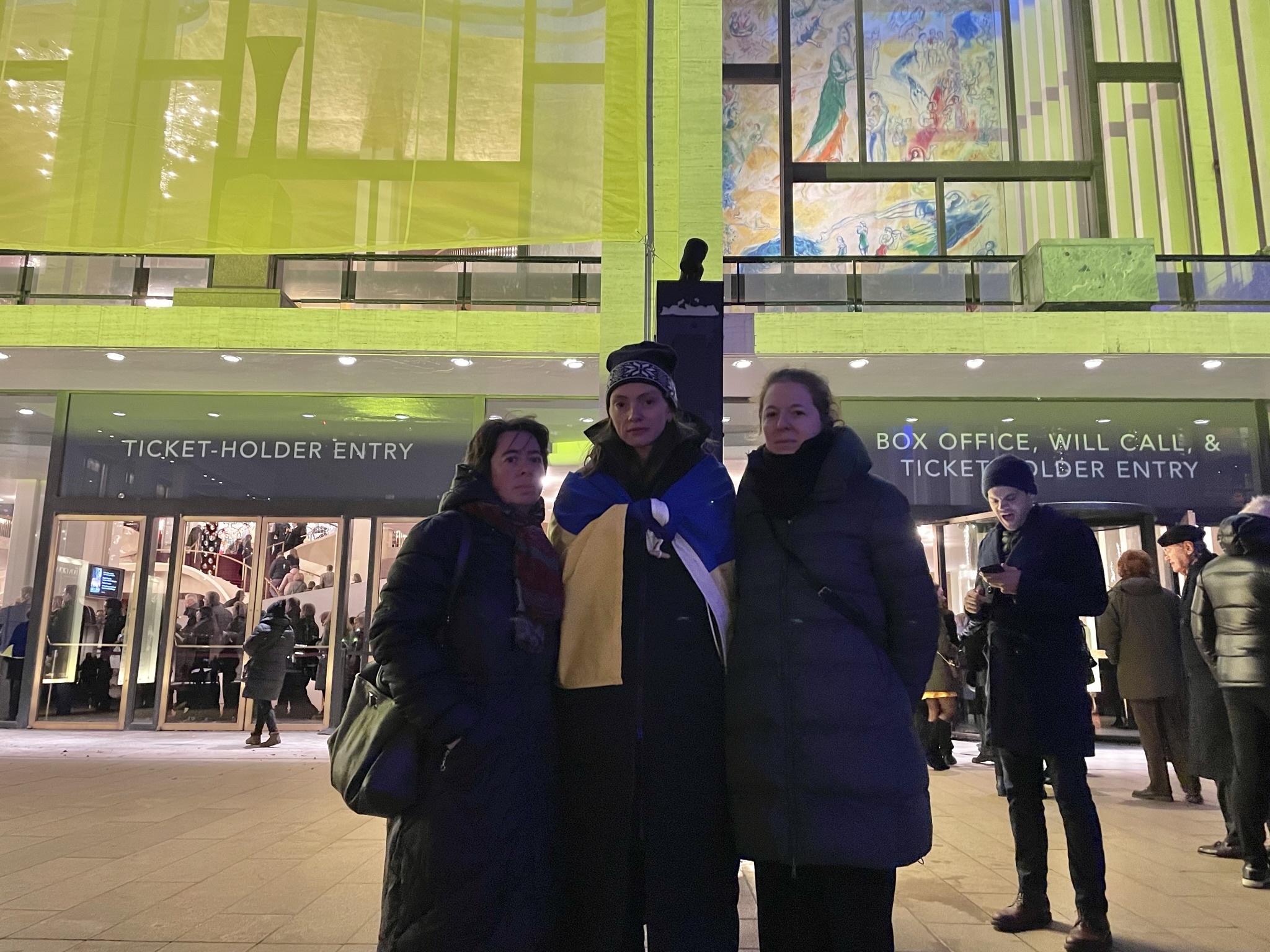
Anna came to the concert with her sister Masha and Anastasiia Chorna, a Ukrainian friend, whom Masha recently met. “She heard me speaking Russian and the next thing I said was I’m from Ukraine, and she said ‘I’m very sorry,” Chorna said to the Rag while draped in a Ukrainian flag. “It helps a lot just to speak about the war, to remind people about the war.”
At approximately 7:10 p.m., with Yannick Nézet-Séguin as a conductor of the Met Orchestra, chorus and soloists, Olena Zelenska, First Lady of Ukraine, opened the concert in a video message thanking New York and the Met for their support. “A year of full-scale war is not a date we want to mark,” she said. “That is why we mark something different today; we mark the year of resistance.” After a round of applause from the packed auditorium and several flags waving up in the higher balconies, the maestro conducted the national anthem of Ukraine along with the singing of those weeping for their motherland.
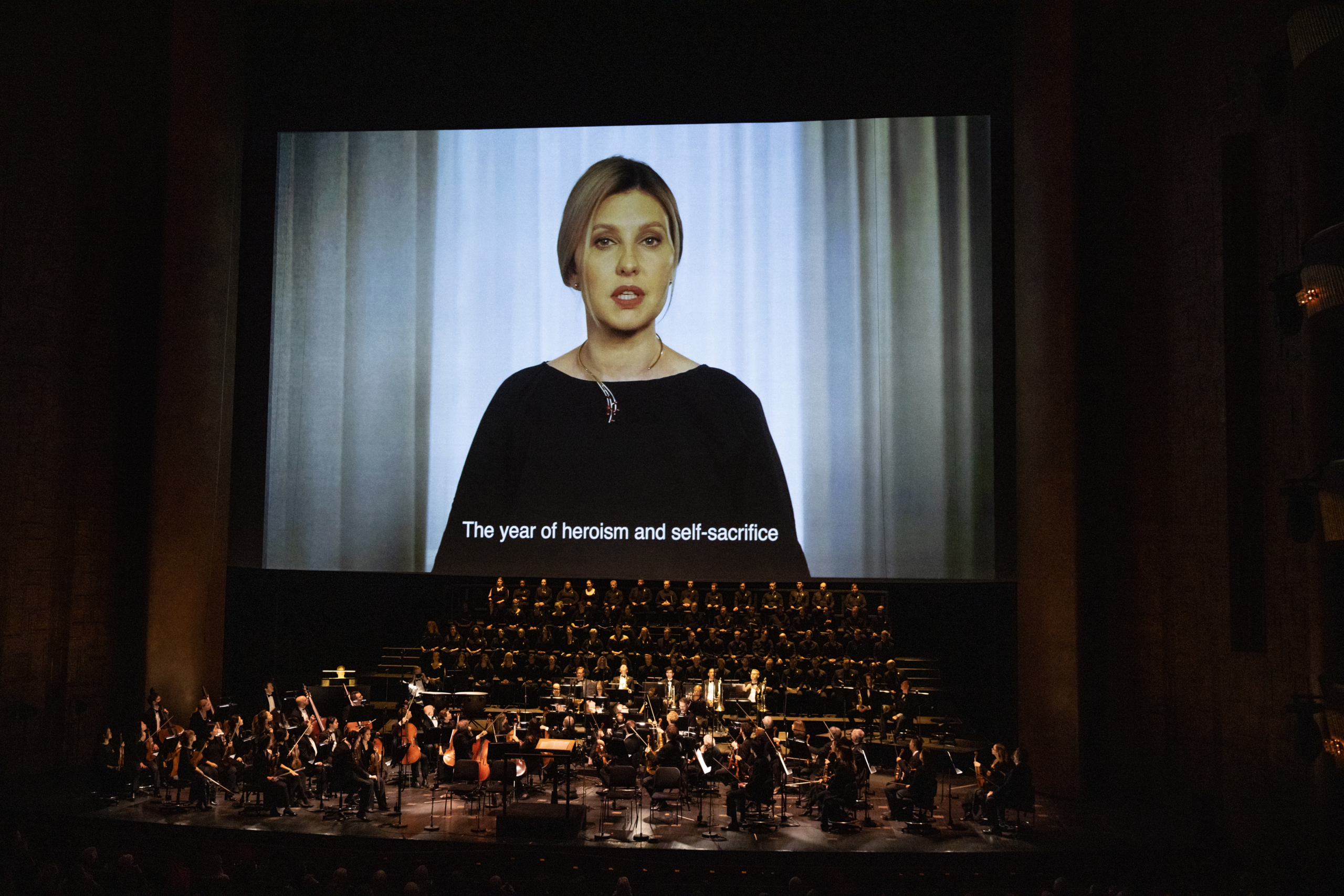
Nézet-Séguin was flanked by soprano Golda Schultzand and mezzo-soprano Emily D’Angelo, who wore a black skirt adorned with 365 chalk-like lines, one for each war day, as AP reported. The male soloists, tenor Dmytro Popov and bass-baritone Vladyslav Buialskyi, both Ukrainian, carried yellow and blue ribbons attached to their tuxedos, as did many of the musicians and the approximately 70-person chorus.
During Mozart’s Requiem, which filled the auditorium with sounds of violins intertwined with the solemn chorus voices, D’Angelo and Schultz kept their eyes closed while Popov and Buialskyi looked solemnly at the audience. Many attendants wore Ukrainian-inspired outfits, including a gray-haired woman with a mustard-colored top and a blue wool scarf. Few masks covered their faces, a symbol that, for many New Yorkers, the three-year pandemic might be over.
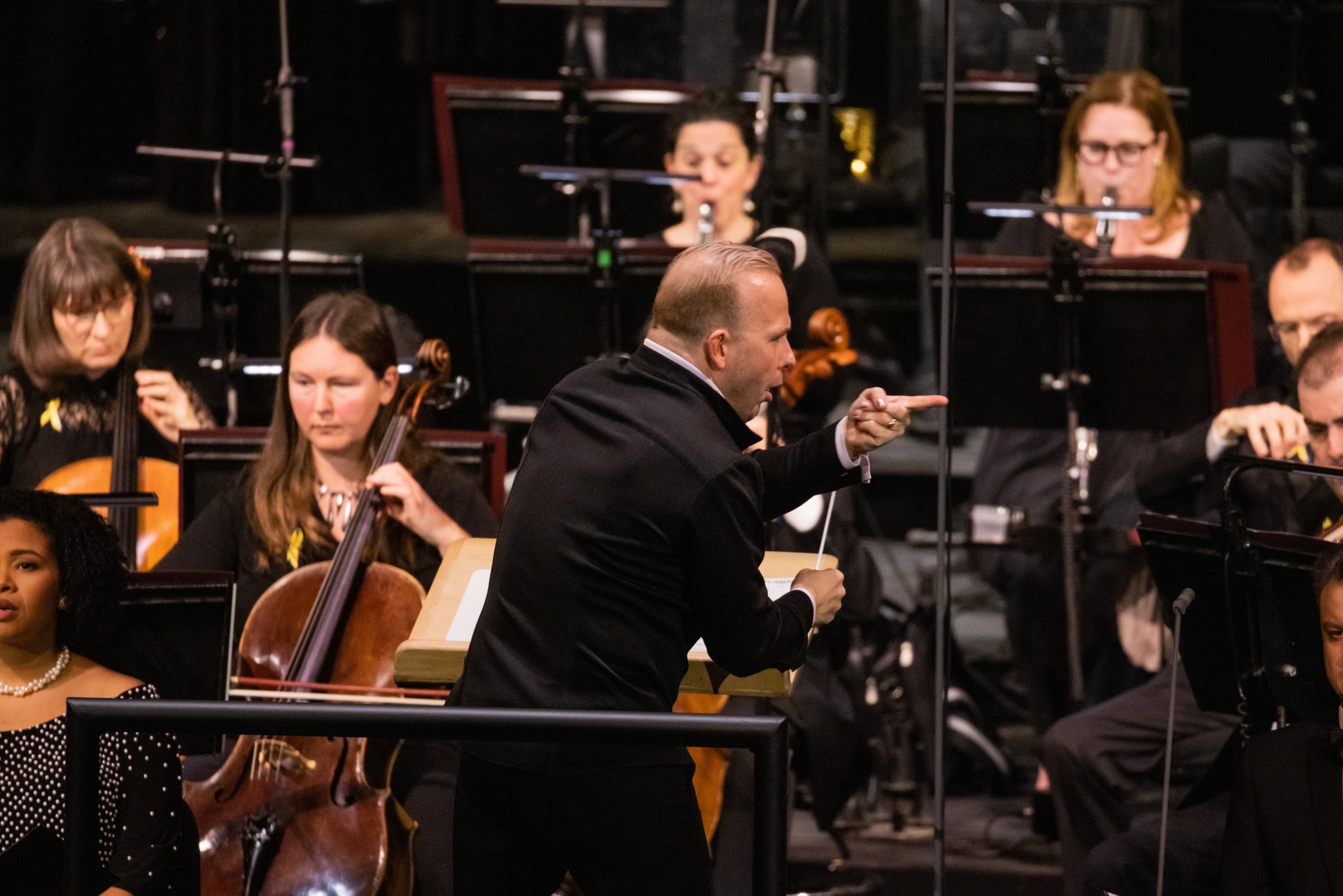
“I love opera and Ukraine,” said Arsen Perri, a concert-goer from Gori, a city in the former Soviet republic of Georgia, during the intermission. In 2008, Perri’s hometown was bombarded by Russia, so the Met’s tribute felt personal, Perri said. “I’m sure this helps. It’s very emotional and spiritual,” Perri told the Rag. “I’m hopeful, but Ukraine needs support. Europe and America should do more.”
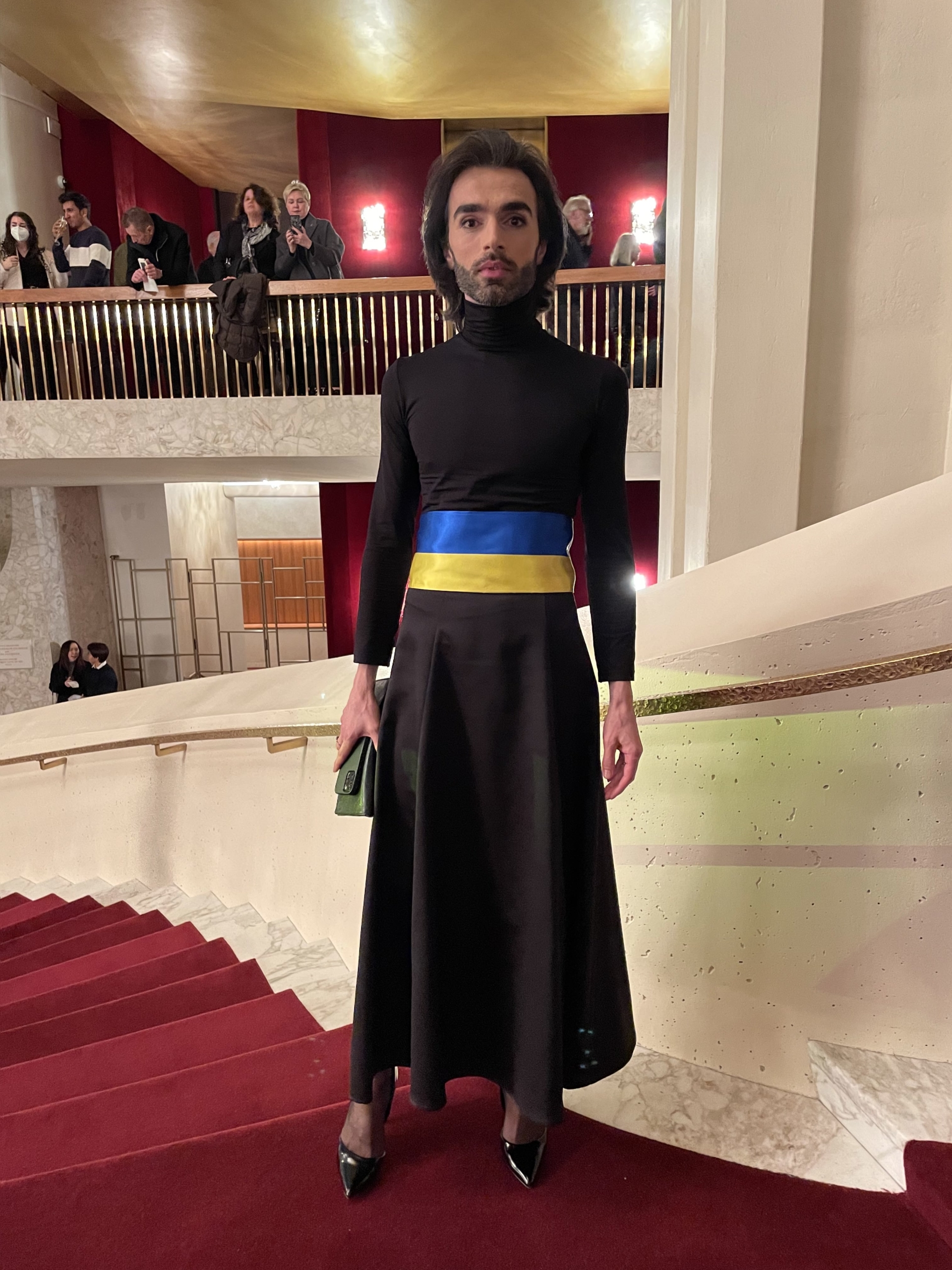
After the pause, Beethoven’s Symphony No. 5 in C Minor, Op. 67 led the second part of the concert. “Mozart’s Requiem is to remember the innocent victims of the war, and Beethoven’s Fifth is in anticipation of the victory to come,” said Peter Gelb, the Met’s general manager, in a press release.
The concert closed with Valentin Silvestrov’s Prayer for Ukraine, written in 2014 during what Ukrainians call the Revolution of Dignity, when civil protests forced the ouster of Russophile President Viktor Yanukovych. The four soloists came on stage with the two Ukrainian artists draped in flags. A woman walked to the front of the auditorium to present Nézet-Séguin with a bouquet of sunflowers, a Ukrainian national symbol.
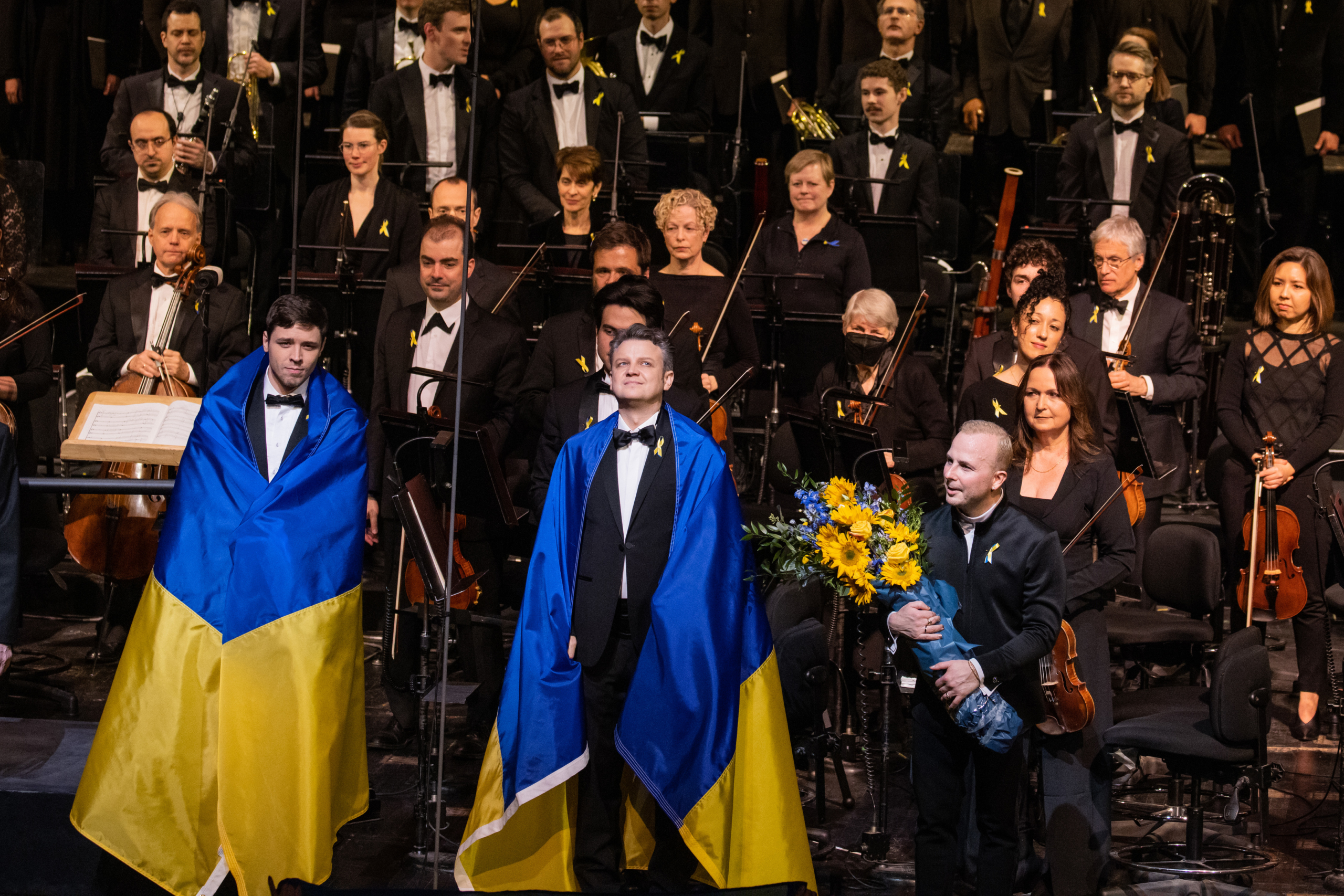
“The concert was splendid, the selection was very appropriate and the performances were of superb quality,” audience member Boris Kogan told the Rag after the performance. “It’s a very good and honorable initiative; it brings people together [and] contributes monetarily to Ukraine.”
At the gates of the opera, Oleksandra Hrabova, from Lviv, and her daughter Daria, born in New York, hoped the concert would help remind Americans of the horrors of war. “In the beginning, everybody was talking about the war, and then month by month, they stopped talking, but it’s a worse situation,” Hrabova told the Rag. “We would like the world to know what’s going on; the world has to stay with Ukraine.”
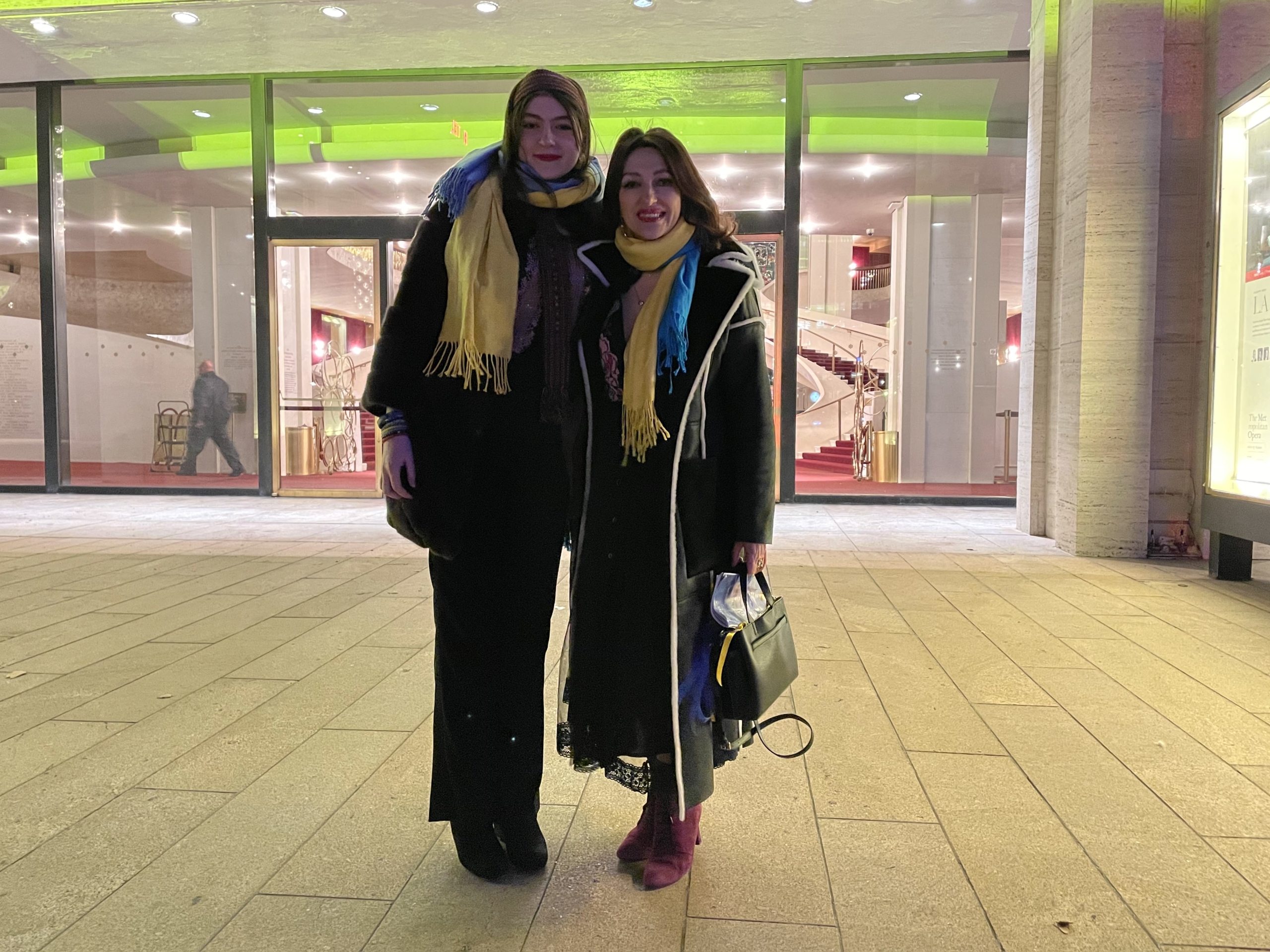



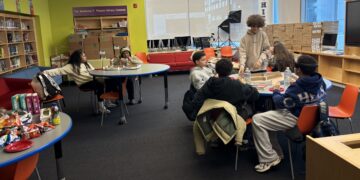





“Glory to Ukraine”, /s
Wonderful. Thank you.
The entire free world and most of the rest of the world sees clearly the crimes Russia is committing in/to the Ukraine. And the Ukraine is, with limited free world help, valiantly militarily defending it’s homeland. Unfortunately the Russian propaganda control is preventing the good Russian people any honest perspective or reality about what Putin is doing to the Ukraine under the Russian banner.
Inside Russia there is a great need for a second information front that helps the Russian people learn the truth. How this is best done is really up to those few inside Russia that truly know the truth and for them to mount a Civil resistance of information about what Putin’s crimes in the Ukraine are.
How Civil resistance to Russia’s war against it’s Ukraine neighbor/brother is best pursued is really up to those who embrace the task. As angry as the Ukraine people are, I don’t believe they want the same for their Russian brothers. The Civil resistance could/should start a clandestine information front inside Russia. Perhaps leaflets are distributed at Russian schools, church’s, civilian centers, hospitals asking/pleading with the Russian population to stop Putin’s war crimes within the Ukraine. The leaflet should point out that instead of a leaflet it could have been a bomb but they don’t want their Russian brothers to feel the pain Putin is inflecting upon the entire Ukraine.
Independent Russian media exists, but almost all of it operates in exile now since the Kremlin made it a crime last year to call the war a “war,” and named most independent outlets foreign agents and/or “undesireable.” The undesireable designation makes it a crime not only for the media outlet to publish but for people to share its work, support it financially, etc. Independent Russian media now must rely largely on Western support. One of the best independent sites, Meduza, has an excellent English page: https://meduza.io/en. It’s free, but if you read it and learn from it, consider becoming a sustaining contributor. You will help assure it continues to exist,. Though blocked in Russia, it can still be accessed there by VPN.
Those who already get their non-propaganda news from the in exile Russian alternate free press via a VPN are not the audience. An internal Russian civil resistance would create an alternative voice for those who are only able to listen to Putin’s propaganda. It will be dangerous for the civil resistance so their methods would have to be on the down low (clandestine).
It was a glorious and moving evening from start to finish.
The countries that are free salute Ukraine.
Lets hope freedom will be achieved there as well.